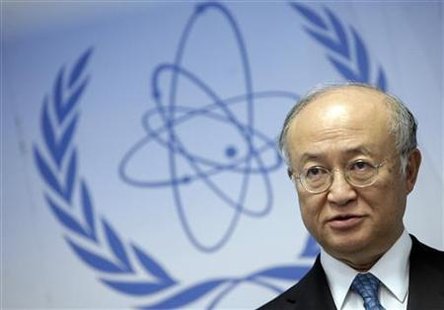by grtv
Gareth Porter: IAEA demanded to see Parchin on recent visit ahead of schedule to make Iran look uncooperative.
Gareth Porter is a historian and investigative journalist on US foreign and military policy analyst. He writes regularly for Inter Press Service on US policy towards Iraq and Iran. Author of four books, the latest of which is Perils of Dominance: Imbalance of Power and the Road to War in Vietnam.
Transcript:PAUL JAY, SENIOR EDITOR, TRNN: Welcome to The Real News Network. I'm Paul Jay in Washington.
In the war of words between Iran and the United States and Israel over what U.S. and Israel claim is a weapons program in Iran, nuclear weapons program, much of this hinges on the assessment of the IAEA, the International Atomic Energy Agency, which under its leader ElBaradei consistently said there was no objective, scientifically verifiable evidence that there was a nuclear weapons program in Iran. But there's a new leader at the IAEA, and under this new leadership the words and language and reports coming out of the IAEA have set another tone.
Now joining us to talk about that and a recent visit of the IAEA to Iran is Gareth Porter. Gareth's an investigative journalist and historian, often contributor to The Real News, and he now joins us from Doha, where he is in the midst of a trip around the region. Thanks for joining us, Gareth.
GARETH PORTER, INVESTIGATIVE JOURNALIST: Thanks very much, Paul.
JAY: So talk about this recent trip of the IAEA to Iran, what happened, because much was made of it. It was supposed to have been a trip that would be sort of the test for the Iranians: are they really going to cooperate or not? And then the IAEA comes back and says they're not being cooperative. And this of course added fuel to the fire being built by those who would like to see more pressure or even a military attack on Iran. So what did you find?
PORTER: Well, you're absolutely right that the February trip by a delegation from the IAEA led by the head of the surveillance part of the IAEA, the safeguards division of the organization, Herman Nackaerts of Belgium, the world's press was basically told immediately after the delegation had left Tehran that the Iranians had been uncooperative and that this was a huge disappointment. And then you had various other people, anonymous sources, being quoted in the media saying the same thing, that Iran had had the opportunity to show that they would be cooperative with the IAEA, and particularly cooperative on the question of allowing them to visit Parchin, and that the Iranians had failed in that test and had shown that they were still on a track that was refusing cooperation with the IAEA. That was the overwhelming—in fact, I would say, the universal message that came from the world's news media after that [crosstalk]
JAY: Yeah, the head of the IAEA said that—essentially, that they wanted to get to Parchin quickly because there had been some evidence that they were trying to clean something up and they wanted to know what that something was...more transcript follows
